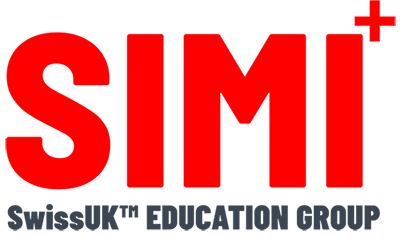ST0272Chartered manager Standards
CHARTERED MANAGEROccupation summary
Details of the Standard
A Chartered Manager is a professional recognized for their ability to lead people, manage projects, and oversee operations or services to achieve long-term organizational success. They are known for their ethical behavior, impactful results, and commitment to continuous learning and development.
Occupation Profile
Chartered Managers work across various sectors—private, public, or third sector—and in organizations of all sizes. Typical roles include Manager, Senior Manager, Head of Department, and Operations Manager, or any position with significant management responsibilities.
These professionals are adept at handling complexity and delivering strategic or operational impact. They are responsible for setting and achieving organizational goals through a broad range of functions. Chartered Managers strive to fully develop their management and leadership skills, which encompass strategic decision-making, direction-setting, team building, communication, skill development, and motivation. They also focus on fostering inclusive and ethical cultures, leading change, managing projects and finances, driving innovation, managing risks, and building stakeholder relationships.
MAPPEDChartered manager Standards
CHARTERED MANAGEROrganisational Performance – delivering a long-term purpose
Understand how to develop and implement organisational strategy and plans, including approaches to resource and supply chain management, workforce development, sustainability, taking and managing risk, monitoring and evaluation, and quality assurance. Know how to manage change in the organisation.
Understand financial strategies, including budgets, financial management and accounting, and how to provide financial reports. Understand approaches to procurement and contracting, and legal requirements. Understand commercial context in an organisational setting and how this changes over time.
Know how to create marketing and sales strategies. Know how to segment and target relevant markets and customers (global and local), analysis of opportunities and ways to market. Understand the need for innovation in product and service design.
Understand approaches to innovation and digital technologies and their impact on organisations, and how their application can be used for organisational improvement and development. Understand innovation and digital technology’s impact on data and knowledge management for analysing business decision-making.
CHARTERED MANAGERInterpersonal Excellence – leading people and developing collaborative relationships
Understand different forms of communication (written, verbal non-verbal, digital) and how to apply them. Know how to maintain personal presence and present to large groups. Awareness of interpersonal skills of effective listening, influencing techniques, negotiating and persuasion.
Know how to recruit, manage and develop people, using inclusive talent management approaches. How to use HR systems and processes to ensure legal requirements, H&S, and well-being needs. Know how to set goals and manage performance.
Understand approaches to stakeholder, customer and supplier management, developing engagement, facilitating cross functional working and negotiation. Know how to shape common purpose, as well as approaches to conflict management and dispute resolution.
CHARTERED MANAGERPersonal Effectiveness – managing self
Know how to be self–aware and recognise different learning styles. Know how to use emotional and social intelligence, and active listening and open questioning to work effectively with others.
Know how to undertake research, data analysis, problem solving and decision-making techniques, and understand the values, ethics and governance of your organisation.
CHARTERED MANAGEROrganisational Performance – delivering a long-term purpose
Support the development of organisational strategies and plans. Develop and deliver operational plans; being able to set targets and KPIs, manage resources, and monitor and measure outcomes to establish operational effectiveness, efficiencies and excellence. Produce reports that clearly present information and data, using a range of interpretation and analytical processes. Gain wide support to deliver successful outcomes.
Managing budgets, controlling expenditure and production of financial reports.
Use of customer insight and analysis of data to determine and drive customer service outcomes and improve customer relationships. Creative approaches to developing solutions to meet customer need.
Able to identify service/organisational improvements and opportunities for innovation and growth, using qualitative and quantitative analysis of information and data and benchmarking against others.
CHARTERED MANAGERPersonal Effectiveness – managing self
Able to reflect on own performance, identifying and acting on learning and development needs. Ability to understand impact on others. Can manage stress and personal well-being, and confident in knowing core values and drivers.
Use evidence-based tools and ethical approaches to undertake problem solving and critical analysis, synthesis and evaluation to support decision making.
CHARTERED MANAGERInterpersonal Excellence – leading people and developing collaborative relationships
Communicate clearly, effectively and regularly using oral, written and digital channels and platforms. Use active listening and open questioning to structure conversations and discussions, and able to challenge when appropriate. Manage and chair meetings and clearly present actions and outcomes. Ability to apply influencing and persuading skills, to the dynamics and politics of personal interactions.
Able to build teams, empower and motivate others to improve performance or achieve outcomes. Able to delegate to others, provide clear guidance and monitor progress. Ability to set goals and accountabilities.
Able to build rapport and trust, develop networks and maintain relationships with people from a range of cultures, backgrounds and levels. Able to contribute within a team environment. Effectively influence and negotiate, being able to have challenging conversations and give constructive feedback. Work collaboratively with internal and external customers and suppliers.
CHARTERED MANAGERBehaviours
Drive to achieve in all aspects of work. Demonstrates resilience and determination when managing difficult situations. Seeks new opportunities underpinned by commercial acumen and sound judgement.
Flexible to the needs of the organisation. Is creative, innovative and enterprising when seeking solutions to business needs. Positive and adaptable, responding well to feedback and need for change. Open to new ways of working and new management theories.
Sets an example, and is ethical, fair, consistent and impartial. Operates within organisational values and adheres to the requirements of relevant professional bodies.
APPLIEDPrograms mapped with
Chartered manager Standard
Off-campus

OTHMMaster of
Business Administration
FEDERAL STATUSBecome Swiss University 2027

SIMI Swiss is actively preparing to seek accreditation from the Swiss Agency of Accreditation and Quality Assurance (AAQ), which is approved by the Swiss Accreditation Council (SAC), by 2027.

FEDERAL STATUSBecome Swiss University 2027
SIMI Swiss is actively preparing to seek accreditation from the Swiss Agency of Accreditation and Quality Assurance (AAQ), which is approved by the Swiss Accreditation Council (SAC), by 2027.





